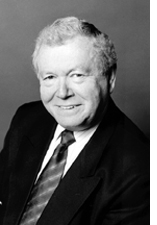By Rabbi Dow Marmur
That’s the number of days On Saturday, March 5, that Gilad Shalit, the kidnapped IDF soldier, has been in Hamas captivity and there’s no sign that his release is imminent or, for that matter, that he’s still alive. For all the precise intelligence that Israel is reported to have in Gaza, and despite the limited room to maneuver the captors have there, Gilad’s whereabouts are unknown. It’s therefore quite unlikely that Israel is in a position to free him; even if it knew where he is, the risk of him being killed during an operation is too great to take.
As seems is the risk of paying the ransom. Hamas demands the release not only of some thousand Palestinians currently in Israeli jails for various – in the context, relatively minor – terrorist offences but also of a considerable number of men with “blood on their hands” who’ve murdered Israelis in attacks and raids.
The government of Israel doesn’t want to release these murderers, firstly, because they’re likely to repeat their crimes once they’re freed and, secondly, because of the campaign by the families of the victims against the return of the perpetrators to the safety of their own homes. These families demand that justice for many tamper mercy for one.
The Shalit family, together with their many friends and supporters, is engaged in a national and international campaign on behalf of Gilad. The aim is to get leaders in the free world to exert pressure on Hamas to accept the terms offered by the Israeli government for his release or, at least, to enable Red Cross representatives to visit him.
At the same time the campaign also seeks to put pressure on the Israeli government to give in to the demands of the captors and thus reflect the Jewish teaching that to save one life is to save the whole world.
It’s with the latter objective in mind that the campaign organizers have put up a tent in front of the prime minister’s official residence in Jerusalem. It’s reminiscent of the campaign during the first Lebanon war when its opponents stood outside the same building to remind the then Prime Minister Menachem Begin of the growing number of dead that the military operation was claiming daily.
Last Friday evening I attended a Kabbalat Shabbat service on the site. It was organized by members of Kol Haneshama, our Jerusalem congregation. We needn’t have been there in order to remember Gilad in our prayers and to entreat God to look after him. We came as an expression of solidarity with his family to show that we care and, by implication, to urge the powers that be to bring Gilad home whatever the cost.
It’s now almost five years since he was captured. During that time there has only been one sign of life from him: a video released by Hamas in which he’s holding a current newspaper and urging Israel to yield to the demands and bring him home. Though it’s generally accepted that he’s much more worth to Hamas alive than dead, we also know that terrorists are unpredictable. So we also prayed for his safety.
While a German mediator is said to continue the negotiations for Gilad’s release, the agony of his family is beyond comprehension. When asked how he copes with his pain, Gilad’s father said that it’s nothing compared to what his son must be going through.
After the service we tried to talk about other things, not because we didn’t care but because words failed us in trying to express what we felt. We all want to see Gilad back home, but some of us also sympathize with the prime minister’s dilemma.
*
Rabbi Marmur is spiritual leader emeritus of Holy Blossom Temple in Toronto. He now divides his year between Canada and Israel. He may be contacted at dow.marmur@sdjewishworld.com
